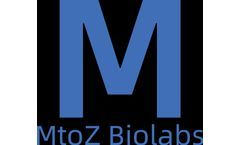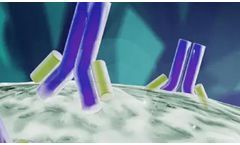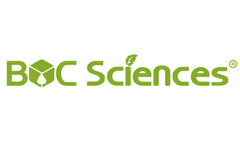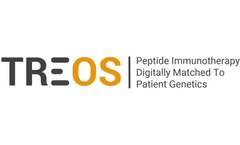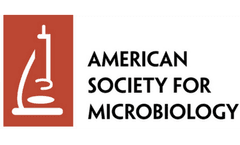Antigen Expressed Articles & Analysis
17 articles found
These technologies allow scientists to cut, insert, or modify specific DNA sequences, enabling the customization of T cells to recognize and attack disease-specific antigens. Applications in Cancer Therapy One of the most promising applications of gene editing in primary T cells is in cancer therapy. By engineering T cells to express chimeric ...
One promising strategy is to deliver genes that express tumor suppressor proteins or anticancer agents into cancer cells to induce cell death or inhibit their proliferation. In addition, gene delivery can be used to modify vulnerable cells, analogous to T cells, to express antigen receptors that specifically kill cancer cells. Overall, gene ...
Recombinant protein vaccine is a type of vaccine that does not contain complete pathogens and is prepared from specific protein antigens produced by heterologous expression systems. Due to their advantages of good safety, strong stability, and relatively low cost, recombinant protein vaccines have been widely favored by researchers in recent years. ...
FC analysis can characterize individual cells in terms of cell surface or internal antigen expression, subcellular components (such as mitochondria), and cell dynamic properties (such as changes in protein expression, calcium flow, membrane potential, and cell proliferation). ...
Targets can be divided into tumor-specific antigens (TSA) and tumor-associated antigens (TAA) according to their expression. Antigens that are only expressed in tumor cells but not in normal cells are tumor-specific antigens and the most ideal targets; antigens that are lowly ...
ADCs usually consist of a fully humanized monoclonal antibody (mAb), a cytotoxic drug, a suitable linker, and an antigen specifically expressed on tumor cells. In 2000, the FDA approved the first ADC molecule, Gemtuzumab ozogamicin, for the treatment of AML. ...
However, some cancer subtypes are relatively resistant to NK cell cytotoxicity. Expression of anti-CD19 chimeric signaling receptors can enhance NK-cell reactivity against CD19+ leukemia and lymphoma cells. Here we describe a method to enforce expression of such receptors in human NK cells relying on electroporation of mRNA and compare it to retroviral ...
In addition, oral administration of liposome-antigen formulations may enhance antigen delivery to antigen-presenting cells.Topical drug administrationLiposomes can reduce the side effects of topical drugs because they require only small doses when used as topical formulations. ...
Self-amplifying RNA vaccines may induce equivalent or more potent immune responses at lower doses compared to non-repli- cating mRNA vaccines via amplified antigen expression. In this paper, we demonstrate that 1 mg of an LNP-formulated dual- antigen self-amplifying RNA vaccine (ZIP1642), encoding both the S-RBD and N antigen, ...
TCR-engineered T cells express tumor antigen-specific receptors with alpha and beta chains generated from high-quality, high-affinity clones of antigen-specific T cells. ...
Novel cytotoxic drugs New cytotoxic drugs have been developed to target cancer cells with low antigen expression or resistance to auristatins or maytansinoids. For this purpose, PBD dimers have been developed, which have a molecular structure containing two alkylated imine functional groups capable of forming covalent bonds with DNA.PBD dimers are about 50-100 ...
Compared to conventional vaccines, nanovaccines offer advantages in lymph node accumulation, antigen assembly, and antigen presentation. They also have unique pathogenic bionic properties due to the ordered combination of multiple immune factors. ...
The therapy is mainly composed of monoclonal antibodies (mAb) directed against the antigen expressed on the surface of cancer cells and a near-infrared light-absorbing dye (IR700) that has cell-killing properties. ...
” Article highlights include: For the first time, individuals’ complete HLA-genotype and ethnicity were considered for the selection of shared SARS-CoV-2-specific epitopes PolyPEPI-SCoV-2 vaccination will likely elicit multi-antigenic T cell responses in 98% of individuals, independent of ethnicity (unlike the commonly used epitope selection approach based only ...
Gene-modified cell therapies (GMCTs) represent the most effective therapeutic platform for many patients with advanced diseases including relapsed and refractory leukemia, non-Hodgkin lymphoma, and other blood cancers [1]. Specifically, chimeric antigen receptor T cell (CAR-T) therapies targeting CD19 have demonstrated remarkable responses and possibly cures in patients with advanced acute ...
Chimeric antigen receptor T-cells (CAR-T) are one of the first clinically approved therapies to take full advantage of the most significant advancements in immunology and genetic engineering. The resulting therapeutics have been shown to produce remission rates exceeding 80% in patients with CD19+ B-cell lymphoma, making them nothing short of remarkable [1]. Unfortunately, CAR-T cells seem ...
We report here the characterization of a mutant mouse line with a specific gene trap event in the Mdm4 locus. Absence of Mdm4 expression results in embryonic lethality (10.5 days postcoitum [dpc]), which was rescued by transferring the Mdm4 mutation into a Trp53-null background. ...



